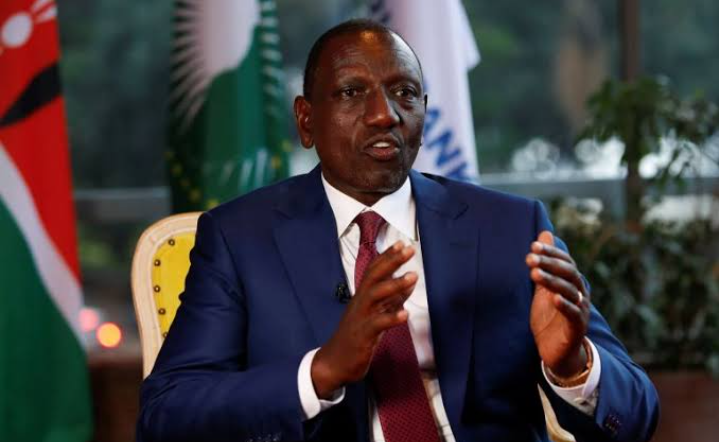Starting January 1, 2025, the Kenya Revenue Authority (KRA) will begin tracking all imported and locally assembled mobile phones using their International Mobile Equipment Identity (IMEI) numbers to ensure accurate tax compliance.
Typically, IMEI numbers are used by law enforcement to trace stolen phones and deter theft.
However, this proposed policy to monitor every phone for tax-related purposes is raising concerns around privacy, personal data rights, and the implications of a policy that could fundamentally alter the balance between regulatory enforcement and individual privacy in Kenya.
At the core of the privacy concerns is the IMEI number itself.
Each IMEI is a unique identifier assigned to a mobile phone, making it possible to trace the exact location and activity of a device.
Traditionally, this number has only been utilized in cases of theft, where law enforcement agencies and telecom operators work to disable stolen devices and track their movement.
Using IMEI numbers for taxation introduces a new purpose that diverges from the established use of this data, positioning the government as a constant observer over millions of mobile users.
While KRA’s intentions may focus on reducing tax evasion and boosting revenue, there is an uneasy feeling among critics that such a policy steps dangerously close to infringing on the rights to privacy and data security that are protected under Kenya’s legal framework.
Kenya’s data laws, particularly the Data Protection Act of 2019, clearly stipulate that personal data should be processed with necessity in mind, and only the minimum data required to achieve a purpose should be collected.
The principle of data minimization is central here, aiming to prevent any overreach that might expose personal data to misuse or unauthorized surveillance.
Critics argue that using IMEI numbers to track devices for taxation purposes stretches beyond what would be considered “minimum data.”
IMEI tracking allows authorities to monitor the movement of each device, thus potentially giving them access to an individual’s location history and daily activities.
This overstep has raised alarms about whether this policy will open the door to invasive oversight that goes far beyond tax compliance.
Concerns are growing around the potential future misuse of this data.
If the government gains access to such detailed tracking capabilities, there is a risk that the data could be used for purposes that extend beyond tax compliance.
For instance, authorities may justify continued or expanded surveillance for reasons related to security or public order, even if these were not part of the original intent.
With sensitive personal data stored in government databases, there is also the risk that this information could be accessed by unauthorized entities or misused by government insiders, especially in cases where transparency and accountability may be limited.
These risks bring up an uncomfortable reality: once a monitoring system is in place, scaling it down or restricting its use becomes challenging.
Critics fear that such a policy could become a permanent fixture, making it easier for the government to justify and normalize heightened surveillance over time.
This policy has drawn comparisons with surveillance mechanisms that have been seen in more restrictive societies, where governments justify comprehensive surveillance under the pretense of national security or economic necessity.
However, such systems often erode public trust, as citizens come to feel their personal lives are subject to unwarranted government scrutiny.
With Kenya’s proposed IMEI monitoring policy, individuals may come to feel a similar loss of control over their personal data, resulting in a sense of mistrust in government motives and operations.
When individuals feel that they are being monitored, even for tax purposes, it can create a chilling effect, where they become more cautious or even resistant to using certain technologies or services.
The unintended consequence could be a setback for digital innovation and mobile penetration in Kenya, as individuals might opt to avoid technologies that could potentially expose them to governmental tracking.
The question arises: should tax compliance come at the cost of personal privacy and data security?
This is an ethical question, as much as it is a legal and economic one. While KRA’s pursuit of tax revenue is essential for national development, a policy that appears to prioritize surveillance over personal data protection could erode democratic freedoms and rights.
If the government is to move forward with this policy, there will be a need for strict limitations on how the data is collected, stored, and accessed.
Clear regulations must be established, with transparent mechanisms to ensure that IMEI tracking is restricted exclusively to tax purposes, and without room for data exploitation or overreach.
As Kenya heads towards 2025, the government faces a pivotal decision on balancing taxation enforcement with the fundamental rights of its citizens.
While the collection of IMEI data could help improve tax compliance, the risks associated with privacy, surveillance, and potential misuse of personal information call for caution.
With these considerations in mind, it becomes crucial for authorities to weigh not just the benefits of such a policy but also the broader implications for the nation’s commitment to privacy, freedom, and trust in government institutions.
This debate highlights the growing tension between the state’s regulatory powers and the rights of individuals in the digital age, emphasizing the importance of robust data protection policies that respect citizens’ rights while pursuing legitimate governmental goals.





















Add Comment